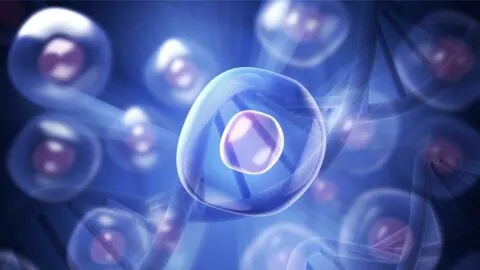July 18, 2024
In Aging Cell, researchers have published their findings into why the inflammatory factor IL-6 inhibits cancerous tumors when generated inside the cell. IL-6 affects both senescence and cancer proliferation Why we Age: Cellular SenescenceAs your body ages, more of your cells become senescent. Senescent cells do not divide or support the tissues of which they...
April 17, 2024
A recent paper published in Nature Aging dives into the gene expression differences between young, middle-aged, and older human ovaries and tests possible interventions to slow down their aging processes [1]. An underexplored area of human aging Female reproductive aging remains a relatively unexplored area of study. With people living longer and females postponing childbearing,...
December 04, 2023
Researchers have described an intermediary state between senescent and young cells, the inflammatory problems caused by these cells, and how young cells secrete a protein that may alleviate these problems. What happens before senescence? Why we Age: Cellular SenescenceAs your body ages, more of your cells become senescent. Senescent cells do not divide or support...
November 07, 2023
A new review summarizes our knowledge about lifestyle interventions, such as exercise, healthy diet, and good sleep, that can possibly reduce cellular senescence [1]. What do we do with a senescent cell? Why we Age: Cellular SenescenceAs your body ages, more of your cells become senescent. Senescent cells do not divide or support the tissues...
October 13, 2023
Scientists have found that leakage of mitochondrial DNA in senescent cells is a major cause of their pro-inflammatory activity, and it can be targeted without clearing those cells out [1]. A new aspect of senescence Why we Age: Cellular SenescenceAs your body ages, more of your cells become senescent. Senescent cells do not divide or...
September 20, 2023
In a recent paper, researchers from McGill University in Canada have investigated how a combination of two senolytics, RG-7112 and o-Vanillin, influences the intervertebral disc cells of back pain patients [1]. Back pain is a widespread issue An overwhelming majority of people, a full 80%, have suffered from back pain at some point in their...






